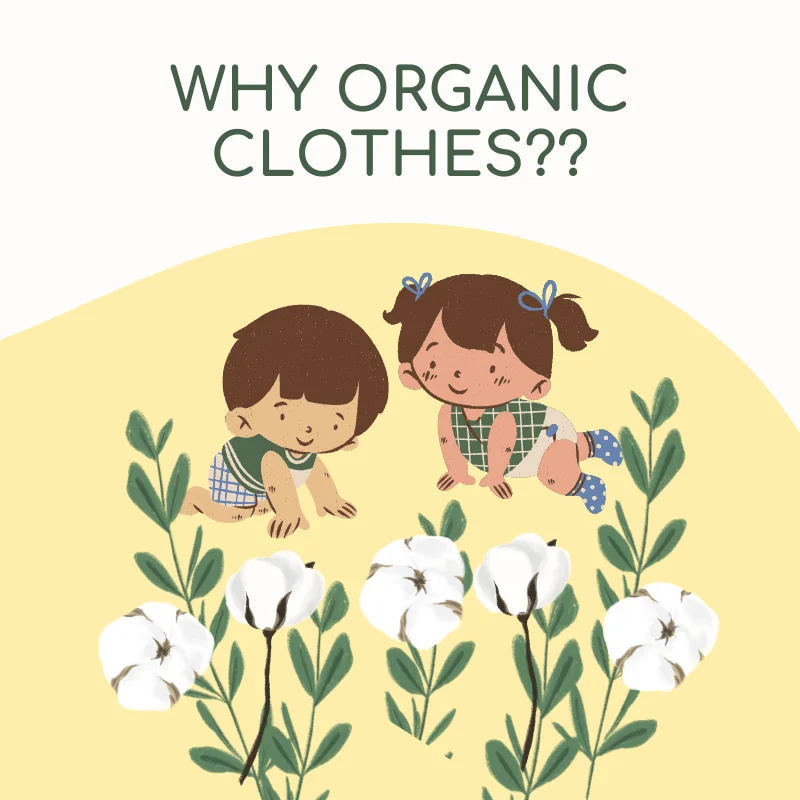Why Organic Cotton Clothing Is Better for Babies | Tiny Kiddo
- Prasanna Yalla
- Feb 19, 2024
- 2 min read
Updated: Apr 18, 2024
Gentler on Baby's Skin:
Organic cotton is grown without the use of synthetic pesticides or fertilizers. This means that clothing made from organic cotton is less likely to contain residual chemicals that could potentially irritate a baby's sensitive skin. Babies' skin is delicate and more prone to irritation, so clothing that minimizes exposure to harsh chemicals is preferred.
Hypoallergenic:

Organic cotton is less likely to trigger allergies since it doesn't contain the same chemicals and allergens that conventionally grown cotton might have. This is important because babies are more susceptible to allergies and skin sensitivities.
Breathability:

Organic cotton is often more breathable than synthetic fabrics. This helps regulate a baby's body temperature, reducing the risk of overheating or discomfort. Proper temperature regulation is crucial for newborns and infants.
Chemical-Free Processing:

In addition to the organic farming practices, the processing of organic cotton typically involves fewer chemicals and dyes. This further reduces the chance of exposing babies to potentially harmful substances.
Sustainability:

Organic cotton is cultivated using environmentally friendly practices that prioritize soil health and water conservation. This creates a healthier planet for the baby's future while also setting an example for responsible consumption.
Softness and Comfort:

Organic cotton fabrics are often prized for their softness and comfort. Babies' delicate skin benefits from clothing that doesn't cause friction or discomfort.
Supporting Ethical Practices:

Many organic cotton producers adhere to fair labor practices, ensuring that the people involved in the production process are treated fairly and paid just wages. Supporting ethical practices aligns with the values of many parents.
Reduced Environmental Impact:

The cultivation of organic cotton involves fewer synthetic chemicals and promotes soil fertility, which helps to minimize the negative environmental impact associated with conventional cotton production.
Biodegradability:

Organic cotton clothing, derived from crops grown without synthetic pesticides or fertilizers, offers a sustainable alternative that decomposes naturally, lessening the strain on landfills and the environment. As it breaks down, organic cotton releases fewer harmful chemicals into the soil and water compared to conventional cotton, fostering healthier ecosystems. By choosing organic cotton apparel, consumers can support eco-friendly practices and contribute to the reduction of waste accumulation in landfills, promoting a greener future.


Comments